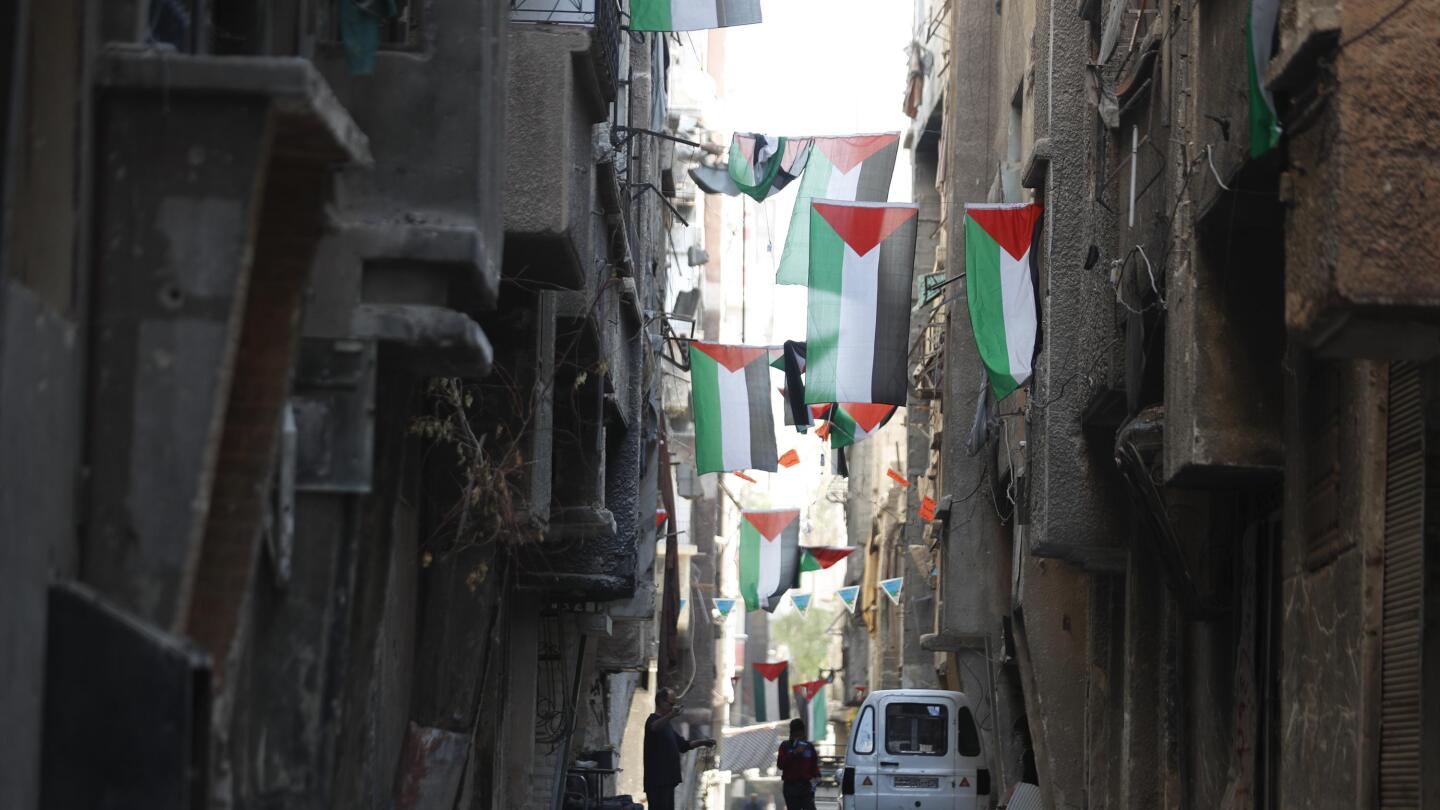Representatives from Hayat Tahrir al-Sham (HTS), the new ruling extremist organization in Damascus, informed the representatives of the Palestinian factions in Syria they would no longer be allowed to possess any weapons, training camps, or military headquarters, Ibrahim Amin of Al-Akhbar reported on 13 December.
Amin further reports that the factions must dissolve their military formations as soon as possible in exchange for political and charitable work under the roof of the new Syrian state.
Palestinian factions, including Fatah, the Popular Front for the Liberation of Palestine (PFLP), and the Popular Front for the Liberation of Palestine-General Command (PFLP-GC), the Saiqa, and Palestinian Islamic Jihad (PIJ) Martyr Ali Aswad Brigad, have had a presence in Syria as guests of the government for decades.
A source in the PFLP-GC revealed to Erem News that the factions were informed of the decision in meeting headed by Ahmed al-Sharaa, also known as Abu Muhammad al-Julani, in the Yarmouk Palestinian refugee camp in the capital, Damascus.
Palestinians came to Syria as refugees during the 1948 Nakba. That year, pre-state Zionist militias ethnically cleansed some 750,000 Palestinians from the land that became the state of Israel, making them refugees in neighboring countries.
Many Palestinian refugees settled in Syria in the Yarmouk Camp on the southern outskirts of Damascus. The camp became the capital of the Palestinian diaspora.
The Palestinian factions formed armed resistance groups and provided manpower for the Palestinian Liberation Army (PLA), which served as an auxiliary to the Syrian Army.
Amin notes that the practical result of these steps taken by HTS, led by former Al-Qaeda leader Abu Mohammad al-Julani, who now goes by his real name Ahmad al-Sharaa, is that the Palestinians are prohibited from using Syria as a headquarters or passage for any activity against Israel.
In 2012, the predecessor to HTS, the Nusra Front, invaded and occupied Yarmouk, seeking to use it as the gateway to conquer Damascus. The camp was largely destroyed over the following years in the course of the fighting. ISIS also occupied the camp and fought against the Syrian army and Palestinian factions there.
Amin says that although the new Syrian government does not talk about establishing relations with Israel, its representatives talk about taking practical steps to prevent any existing or potential resistance against Israel from Syrian territory.
He writes that Israel may seek to force the Lebanese government to take similar actions against Palestinian factions in the refugee camps in Lebanon.

